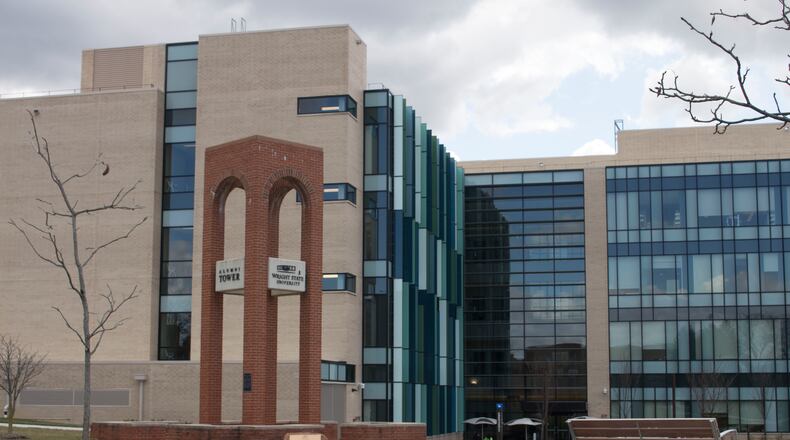“We never had a procedure for calling a strike because in the past we always had a cordial relationship with the administration,” Kich said in the statement.
This news organization has attempted to contact a university spokesman for a response.
At present, according to the statement, AAUP-WSU represents 584 faculty members.
Kich, in the statement, said there was "record high attendance" at Wednesday’s meeting.
RELATED: WSU trustees OK $30.8 million in budget cuts
RELATED: WSU hits 'low point' with layoff announcements
RELATED: WSU President Hopkins resigns amid budget issues
“It is well known that an incompetent administration paired with a negligent Board of Trustees permitted flagrant misspending for several consecutive years that resulted in fiscal crisis at WSU," he said.
"But even though most misspending occurred in areas irrelevant to the University’s academic core missions – teaching students and undertaking research – the administration’s budget cuts have actually targeted the academic core!”
In fact, according to the statement, Wright State students have already lost 71 faculty members because of the administration’s budget cuts.
"That means students have fewer course offerings, higher student-to-faculty ratios, and other significant diminutions of the conditions under which they learn and complete degrees. Indeed, any erosion of faculty working conditions is an erosion of student learning conditions!”
Kich, in the statement, said the "unprecedented move" to approve the strike authorization procedure is necessary to protect the core missions of teaching and research at Wright State University.
Negotiations for a new collective bargaining agreement began in January but broke down in March when the Board hired an outside attorney to replace the university’s chief negotiator, he said. The union has attended two mediation sessions with a federal mediator but the university’s representative refused to provide the union with any concrete proposals at those sessions.
The existing contract, which expired June 30, 2017, remains in effect until after a fact-finder’s report is issued.
Fact-finding is scheduled for late January.
A strike would be a last resort undertaken pursuant to Ohio Revised Code (state law) and is the faculty’s mechanism of last resort to protect our collective bargaining rights and the core mission of the institution, Kich said in the statement.
GOT A TIP? Call our monitored 24-hour line, 937-259-2237, or send it to newsdesk@cmgohio.com
About the Author
